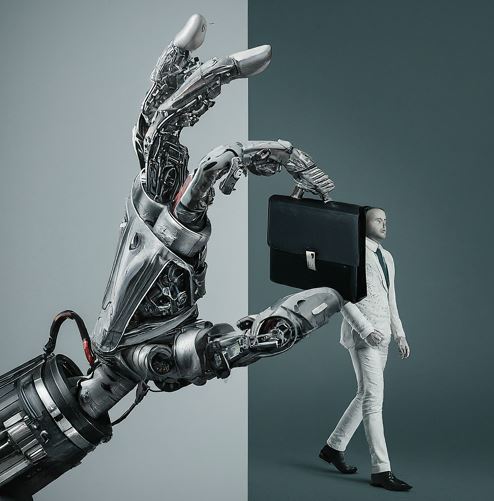Don't fear the robot takeover! This article explores the future of jobs in the age of AI. Discover how AI can automate tasks, boost productivity, and even help you land a job!
 |
| Developing essential skills for the future workforce, including AI literacy and lifelong learning can save jobs. |
As artificial intelligence (AI) continues its meteoric rise, a crucial question looms: will it become the grim reaper of jobs, or a powerful tool empowering the human workforce? While the headlines often paint a dystopian future of robot overlords, experts are offering a more nuanced perspective, highlighting AI's potential as a collaborator rather than a competitor.
Economist Richard Baldwin takes a pragmatic approach, comparing AI to a power drill. Just as a drill enhances a carpenter's abilities, AI can automate tedious tasks and streamline workflows. Career coach Jasmine Escalera echoes this sentiment, emphasizing AI's role in freeing up human time for more strategic endeavors like upskilling and creative problem-solving.
Data backs this up. Studies by MIT, Stanford, and Morgan Stanley all point towards increased productivity and efficiency when workers leverage AI tools. New or lower-skilled workers can see a significant boost, with one study showing a 34% productivity increase when equipped with AI.
Beyond Efficiency: The AI Advantage in the Job Hunt
The benefits of AI extend beyond the workplace. Job seekers are increasingly turning to AI-powered writing tools to craft compelling resumes and cover letters. A recent LiveCareer survey revealed that 85% of job seekers find these tools a time-saver, and 40% credit them with improving their writing skills. AI can be a valuable asset in the competitive job market.
Despite the positive outlook, some job displacement is inevitable. AI will undoubtedly redefine roles across various industries. Companies like IBM have already automated repetitive HR tasks, resulting in a significant workforce reduction. Klarna, a financial services company, implemented an AI assistant that reportedly replaced the work of 700 full-time agents.
Experts like Carl Benedikt Frey of Oxford University warn that transportation, logistics, warehousing, manufacturing, and customer service roles are particularly susceptible to automation, with tasks becoming fully or partially automated.
A 2023 Goldman Sachs report estimates that over 300 million jobs globally could be impacted by AI. While the exact changes remain unpredictable, the message is clear: the future belongs to those who adapt and embrace new skillsets.
Career coach Escalera suggests focusing on developing "human soft skills" like critical thinking, communication, and collaboration – skills that AI cannot easily replicate. Continuous learning and a growth mindset are crucial. As Tripadvisor co-founder Steve Kaufer highlights, employers are seeking candidates who experiment with AI tools. Similarly, J.B. Miller, CEO of Empire Entertainment, considers AI proficiency an "essential new skill set."
The Human-AI Partnership
The future of work is not about humans versus machines, but rather humans working alongside intelligent machines. By developing an understanding of AI tools and embracing lifelong learning, workers can position themselves for success in the evolving job market. AI can be a powerful partner, freeing us from repetitive tasks and allowing us to focus on our uniquely human strengths – creativity, innovation, and emotional intelligence. This human-AI partnership holds the key to unlocking a future of increased productivity, efficiency, and human potential.